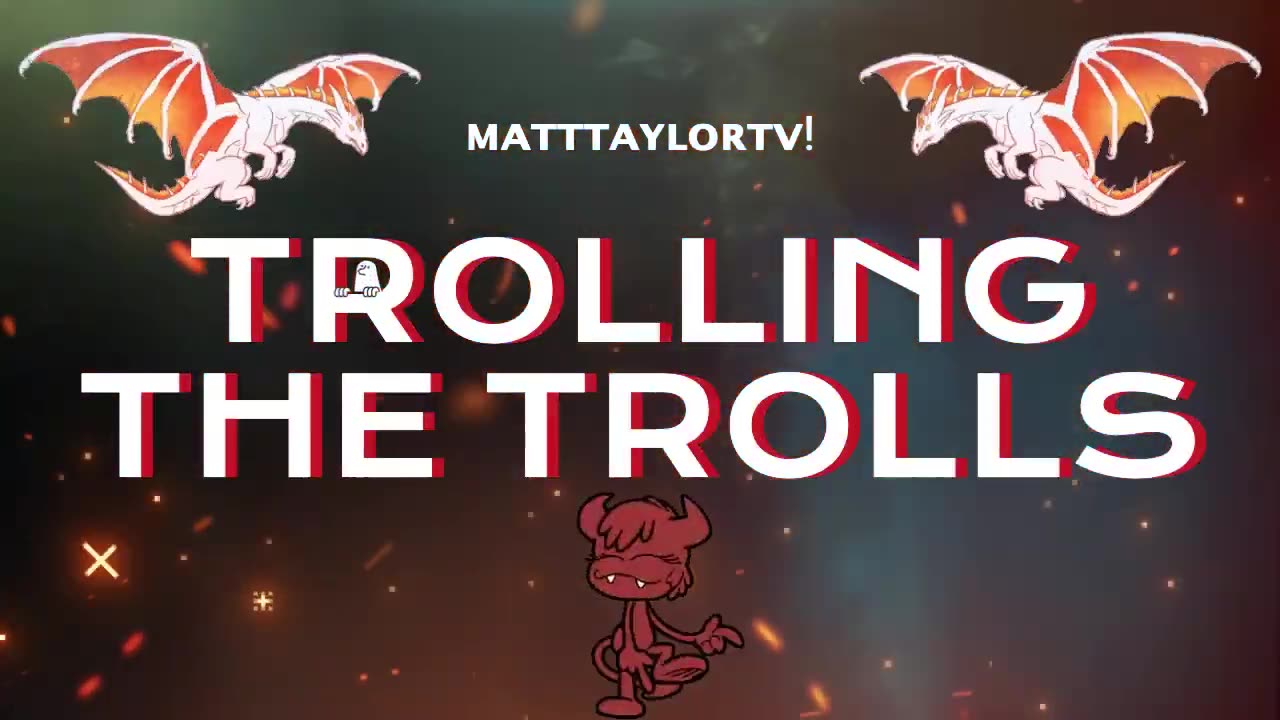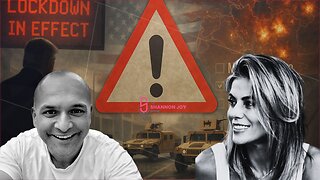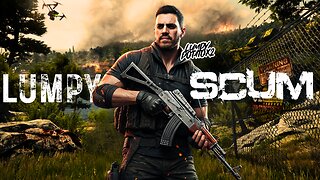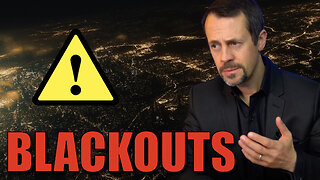Premium Only Content

I Troll the Trolls - And I'm Better at It Than They Are…
In the digital age, where every voice can be amplified through the internet, a peculiar species has emerged: the troll. These are individuals who thrive on disrupting online communities, sowing discord, and generally being a thorn in the side of the internet's more constructive content creators. But what happens when someone decides to fight fire with fire, or in this case, troll the trolls?
Here's my story of becoming a master at the art of counter-trolling.
Why I Started?
I've always believed in the power of constructive dialogue. However, the internet has its share of dark corners where trolls lurk, stifling conversation and harassing individuals just for the thrill of it. One day, after watching a particularly talented troll turn a discussion thread about tidal energy into a battleground, I decided enough was enough. If they could spread chaos, why couldn't I use their tactics to bring about a semblance of order or at least neutralize their impact?
My Tactics.
Mastery of Language and Sarcasm: Trolls often use sarcasm and wit to belittle or provoke. I learned to speak their language but with a twist. I would respond with such exaggerated sarcasm or wit that it would either confuse them or make them laugh at themselves.
Example: A troll might say, "This is the dumbest post I've ever seen." My response? "Ah, thank you for the accolade! I was aiming for the world record of dumbness, and you've just confirmed my achievement!"
The Art of Misdirection: Instead of engaging directly with their bait, I would steer the conversation into absurd, yet related territories. This often left the troll floundering, unable to maintain their original disruptive narrative.
Example: If a troll mocks someone's opinion on climate change, I might counter with, "Oh, you're right, climate change is clearly a plot by the penguins to take over the world. They've been planning this since the ice age!"
Incorporating Humour: Humour can disarm even the most seasoned troll. By turning the situation into a comedy skit, you can reduce the troll's effectiveness.
Example: "Ah, you've come to bless us with your infinite wisdom. Tell me, did you learn this in Troll School or is this just natural talent?"
The Silent Treatment: Sometimes, the best response to a troll is no response at all. By ignoring them, you deprive them of the attention they crave, which can be more frustrating than any witty comeback.
The Results.
This approach has not only made online spaces more bearable but also surprisingly enjoyable. Trolls have either left in frustration or, in rare cases, joined in on the humour, turning into less toxic participants. It's a testament to the idea that sometimes you need to fight fire with fire, but with a better extinguisher.
Ethical Considerations.
While I pride myself on being better at trolling the trolls, it's important to wield this power responsibly. The aim isn't to become a troll but to use the methods to protect and promote positive interaction.
Here are some ethical boundaries I adhere to:
Never Attack Personal Characteristics: Stick to the argument, not the person.
Avoid Over-Engagement: Know when to disengage to prevent escalation.
Promote Learning: Whenever possible, turn the interaction into a learning moment for others.
In Conclusion.
Trolling the trolls isn't about escalating conflict but about restoring balance. It's about using the tools of disruption for disruption's opposite: harmony and understanding. In a world where online interactions can be as influential as real-life ones, perhaps we need more counter-trolls, not to stir up trouble, but to steer conversations back to where they belong - in the realm of constructive dialogue. Remember, the internet can be a place for all, but it's up to each of us to make it so.
-
 2:00:31
2:00:31
Steven Crowder
5 hours ago🔴Tucker Carlson Blasts Ted Cruz on Iran: What This Exchange Really Means
324K300 -
 LIVE
LIVE
LFA TV
17 hours agoLFA TV ALL DAY STREAM - WEDNESDAY 6/18/25
2,432 watching -
 1:11:19
1:11:19
The Rubin Report
4 hours ago‘The View’s Sunny Hostin Gets Visibly Angry When Arnold Schwarzenegger Puts Her in Her Place
68K57 -

Rebel News
1 hour agoCarney says US deal is close, CUPE rallies for Iran, Liberal MP calls out his party | Rebel Roundup
25.5K9 -
 1:51:48
1:51:48
Side Scrollers Podcast
3 hours agoMarathon Delayed INDEFINITELY, Switch 2’s STOLEN, RIP Anne Burrell | Side Scrollers Live
23K2 -
 25:42
25:42
IsaacButterfield
9 hours ago $0.41 earnedAmerica Is Broken
7.95K18 -
 1:22:19
1:22:19
The Shannon Joy Show
4 hours ago🔥🔥False Flag Incoming? Concerns About Another Military Lockdown Under Trump Are Amplified As War Rhetoric Heats Up. With Special Guest Doc Malik🔥🔥
21K4 -
 1:45:13
1:45:13
LumpyPotatoX2
2 hours agoSCUM v1.0 | Roleplaying Gameplay - #RumbleGaming
6.35K1 -
 LIVE
LIVE
GloryJean
4 hours agoMnK #1 Aggressive Gameplay 🖱️ 6.7 K/D
23 watching -
 28:19
28:19
Neil McCoy-Ward
2 hours agoBritain to Suffer BLACKOUTS By December!! (Unless Th...
5.54K2